Want to know more about the market adjustment in car terms? You’ve come to the right place. This article will discuss everything you need to know and how to deal with it. Here’s our table of contents to help you navigate:
Market Adjustment Car: What Is It?
So, what’s “market adjustment” on a car? This is a term you might have heard from the salesperson if you’ve visited a car dealership in the last year or so. Particularly when you ask why the sticker price of a car is so much higher than the MSRP (Manufacturer’s Suggested Retail Price).
You might notice the price of cars has skyrocketed in the past two years. Especially when you look at high-demand cars such as SUVs and trucks. To explain further, we need to explain MSRP just in case some readers are not familiar yet.
Brief Explanation About MSRP
The MSRP is the price tag that a manufacturer gives for their products so that customers know how much it should cost. More importantly, this is the price that retailers should follow when they sell the product.
The price that they sell the product for is sometimes referred to as the “actual price”. In simple terms, think of it as a guideline for retailers on how much they should set the price of certain goods or products.
In the case of the car industry, this is the price given by carmakers that dealers should follow. Remember, dealers are not actually part of the car company and they’re a separate company that sells the carmaker’s product. In other words, they’re a retailing company, kind of like Walmart.
Now, it’s perfectly normal for the actual price to be higher than the MSRP (also known as a markup), usually no more than 10% in most industries. After all, the retailer needs to make money, right? And it can even be lower sometimes in the case of discounts.
Note that the MSRP usually already includes the retailer’s profit in mind. However, as mentioned, it’s not uncommon for retailers (and car dealers) to sell the product at higher prices if they need the profit.
So What’s Market Adjustment In A Car Then?
As mentioned, car prices have soared in the past two years. Some cars now cost well over 20% of their MSRP. And cars with an enthusiast fanbase can cost over 50% more than their MSRP. When you ask about this, dealers will say it’s the market adjustment price.
This hike in price is due to supply chain issues. Carmakers can’t keep up with demands and can’t make enough cars to sell. This makes demand high, and supply low. In economics, this will almost always make the prices of the goods go up. This is why car prices have soared.
To get an idea of what a big problem this is, take a look at the video below from Donut Media where they try to guess the actual price of both new and secondhand cars. They’re so high over the MSRP it will fill you with rage:
In a nutshell, “market adjustment” is another word for dealer markups. Carmakers are still struggling to produce cars, therefore supply is low. Hence the high prices, and this is how dealers justify the significantly higher price. Note that markups—to a certain level—are completely normal in the retail industry.
I used to work in the FMCG (fast-moving consumer goods) industry, and it’s normal for the products to have a 5 to 10 percent markup at retailers. This is sometimes necessary for the retailer’s profit. But since car markups are so high nowadays, dealers use the term “market adjustment” to soften the blow to potential buyers.
But Why Is The Markup So High?
This might seem like a scam, but it really isn’t. Sure, the cost of making these cars and for dealers to buy them from automakers haven’t really changed, that’s because this has to do with cash flow.
Since cars are in low supply, dealers will sell fewer cars. Since they sell fewer cars, they need to sell the available stock at a higher price to make sure that they have enough cash flow to operate until the next shipment of cars arrives. Consider this:
Let’s say a dealer typically sells 10 cars in a month, with a profit margin of $2,000 for each car. This would be a healthy profit margin and gives them a good cash flow to cover their costs and keep them in operation.
Now, let’s say they can only sell five cars in a month due to low stock. If they were to sell them at the same profit margin, this would only be half of what they could normally get and won’t be enough for them to cover costs and have a healthy cash flow. Hence the higher markup to compensate for the fewer cars they sold.
Of course, it’s just a simple example and it’s a lot more complicated than that. But now you get the idea why dealers have to charge more for a car due to the low supply.
What’s A Normal Markup For Cars?
When it comes to brand new cars, the normal markup is usually between 3 to 8 percent over the MSRP. In normal times, this is a fair price to pay a dealer for a new car. Note that this is the invoice price, not the sticker price. So, if a car’s MSRP is $30,000, you should expect to pay no more than $32,400.
Meanwhile, used cars have a slightly higher markup. On average, it’s usually between 10 to 15 percent. This is because there’s more cost involved in selling used cars. This includes paying for the car, inspection and maintenance costs, and of course, the dealer’s profit margin.
Market Adjustment Car: Why Cars Are In Low Supply
If you haven’t been keeping up with the industry, you might be wondering why cars are in low supply. Well, it mostly has to do with the COVID-19 pandemic:
1. Delivery And Production Issues Due To The Pandemic
When the pandemic hits, many companies—including carmakers—thought that the economy would slow down due to lockdowns and consumers will buy less of non-primary products, including cars. In a nutshell, they thought car sales will go down significantly.
This causes them to slow down production, along with many other companies that supply parts for carmakers. There are anywhere between 15,000 and 25,000 components in a car, and many of them come externally and are not manufactured by the car company itself.
However, turns out consumers are still buying cars despite the pandemic. If anything, it makes even more sense to buy a car since you need to avoid large crowds to avoid being infected. So, turns out, car demand was still high, and it’s still rising since the pandemic—or at least the lockdowns—are pretty much over.
Carmakers now have to ramp up production once again, and they’re struggling to do so due to various issues. Mainly sourcing external components, and delivering these cars to where they need to be.
That’s the gist of it, and you can learn more in this article. We won’t get into too much detail. However, the other big reason we’d like to mention is because of a chip shortage:
2. Computer Chip Shortage
The world is also seeing a global computer chip supply issue. This also has to do with the COVID-19 pandemic, where manufacturers reduced production in response to the potential slump in sales.
However, much like the car industry, it turns out computer chips are still in high demand during the pandemic. Even more so, since people were stuck at home, many people were buying more personal computers. Either because they need it to work from home, or they need one for entertainment.
How does this affect the car industry? Well, modern cars need this chip for various things. Including the Engine Control Unit (ECU), the infotainment system, and many other electrical control units in the car.
The chip makers are struggling to meet demand, including supplying the computer chip for cars. Without these chips, carmakers can’t produce their cars, and therefore cars are also in low supply. Of course, the chip shortage isn’t the only reason, but it seems to be impacting the car industry the most.
So, why don’t they just produce more chips? Well, they’d love to. But computer chips are incredibly difficult and expensive to produce. This makes meeting demands quite difficult. Take a look at the video above from Linus Tech Tips to understand how complicated and difficult it is to produce computer chips.
To recap, here’s the reason why there’s a global supply chain issue:
- Companies (including car and computer chip makers) reduced their production, anticipating a slump in sales due to the pandemic.
- Demand for these products remains higher than expected.
- Chipmakers, in particular, are having difficulties meeting demand, slowing the production of other goods that needs it including cars.
That sums up the timeline of how the whole global supply chain issue came about.
Market Adjustment Car: When Will This Get Resolved?
It’s hard to say, but some experts believe things will go back to normal in the third quarter (Q3) of 2022. So, probably somewhere around July. One glimmer of hope is that GPU (Graphics Processing Unit) prices are starting to go back to normal.
If you’re not familiar with computers, GPU is the component responsible for processing display output in a computer. Without it, your computers won’t be able to display anything on the screen. And as you’d expect, they also need computer chips to operate.
High-performance GPUs are in high demand because gamers need them to be able to play the latest and most graphics-intensive computer games. Additionally, GPUs are also used for crypto-mining. And since we’re in a crypto boom, you can see why they’re in high demand.
These GPUs are in low supply for the past two years. It was virtually impossible to find them at retailers, and they were being sold for thousands of dollars higher than their MSRP by scalpers and consumers alike.
Thankfully, GPU prices are lowering since March 2022. This is a good indication that the computer chip production is slowly but surely meeting the demands. So, other products that use computer chips, including cars, might soon follow.
Market Adjustment Car: How It Affects Used Cars
If you’re looking at secondhand cars, you might notice some of them are unusually expensive these days. This also has to do with the car supply chain issues.
Since consumers are having difficulties buying a new car, and even if they could the prices are ridiculously expensive, many are turning to secondhand cars instead. This means secondhand cars are also in high demand, and many owners and dealers are now asking for higher prices.
The lack of availability of new cars also means that people are holding on to their current cars for longer until they can finally take delivery of their new car. As a result, not only there are fewer new cars, but there are also fewer used cars on the market. Take a look:
Adding to the problem is that even if there’s a new car in stock, it might not be to the customer’s liking. Even if consumers can find the model they want, it might not be the right spec. For example, some consumers might be looking to buy a manual Tacoma TRD Pro, but the dealer may only have the automatic version in stock.
This means customers would have to order the car first, and it may take some time to deliver the car. Some customers will even have to wait for at least a year before they take delivery of the car they want. Leading to even more consumers turning to the secondhand market.
Additionally, certain cars are in high demand due to their popularity in the car community. Cars like the Toyota Tacoma, 4Runner, and Ford trucks all have a large fanbase, leading to even higher demand and prices.
Market Adjustment Car: Buying Tips
So, with car prices soaring, what can you do to avoid overpaying? It seems like you’re going to have no choice but to pay for MSRP plus market adjustment right now. Additionally, finding a car might be difficult as well. Here are our tips for car buying during supply chain issues:
1. Haggle
First and foremost, haggle. I don’t like to haggle myself, but in these “market adjustment” times, you will need to haggle whether you like it or not. You should always haggle anyway when you’re buying a car.
It’s not pleasant, especially if you’re a people pleaser. How and why my dad loves haggling, often asking for unreasonable discounts, I’ll never know. But it really is a skill that will come in handy when buying a car.
Since I don’t like to haggle, I probably won’t give great haggling tips for you. But US News has some tips for negotiating at a car dealer and you can read them here.
2. Don’t Be Picky
Don’t be picky about the color, equipment, and trim of the cars available at the dealer. If there happens to be a model that you want but in the wrong color or spec, you should consider getting it anyway as long as it fits your budget. And you’re going to have to act quickly, especially if there’s a good deal from the dealer.
Finding cars with an unusual color or have been sitting on the dealer’s lot for some time might also give you leverage during negotiations as well. Some cars don’t sell very well, be it because of the wrong color, trims, and/or accessories.
Sometimes, some cars are just not the right spec and dealers find difficulties in selling certain cars. If the car has been sitting on the lot for some time, or if the car was manufactured last year (you can check by decoding the VIN), you can use this as leverage in negotiating.
Dealers are going to want to sell them, especially if they’re old units. Those cars will only lose value over time, and selling them as quickly as possible is crucial for their profit. You can use this as leverage, arguing that the car is of older production, and therefore you should get a bigger discount.
3. Travel
You’re going to have to search further for your dream car. Instead of looking at your nearest dealers, try expanding your range and see if any dealers have the right unit in stock for the right price.
You’re still unlikely to pay MSRP, but expand your search and you may find a good deal. If you’re not a fan of visiting dealers and meeting salesmen, consider buying cars online. This brings us to our next tip…
4. Buy Online
Note that you can only buy used cars online. So, if you want to buy brand new, this is out of the option. However, there is plenty of online used car marketplace now, and there are a lot of cars that are only 1 or 2 years old on sale, so they’re still relatively new.
We recommend checking Vroom and Carvana. They’re both online used car marketplaces. Their process slightly differs, but both are simple: you pick a car from their catalog, choose your payment or financing option, upload some paperwork, set delivery or pick up details, and that’s about it.
Of course, there’s a little more to it than that but the process is relatively simple. Both Vroom and Carvana offer a money-back guarantee.
The latter provides the better policy; a 7-day or 400 miles money-back guarantee plus a 100-day or 4,189-mile limited warranty. So, if it turns out you don’t like the car for whatever reason, you can return it. Of course, there are terms and conditions to this policy. Learn more in our article about Vroom vs Carvana.
Best part? No haggling, great for introverts like myself. This means the price you see on the website is what you have to pay. Yes, cars on both Vroom and Carvana also have market adjustment prices. But you can look for cars nationwide so there are a lot of options you can look at without ever leaving your home.
Another option—especially if you’re looking for unique or enthusiast cars—is to check auction sites, such as Bring A Trailer and Doug DeMuro’s Cars & Bids. Auctions can be a way for you to get a good deal on a car.
5. Wait It Out
If you don’t urgently need one, we strongly recommend waiting until the supply chain issue resolves itself and the prices readjust. Car prices are ridiculously high nowadays, and it just seems ridiculous to pay over 50% of a car’s MSRP.
Not to mention once the prices go back to normal and the market readjusts itself, your car will likely lose quite a lot of value. This means your car will depreciate at an insanely high rate, and you’ll have quite a big loss when you resell your car.
One option if you urgently need a car is to get a beater car. Beaters are cars old, high-mileage cars that are ridiculously cheap. You buy these to use daily and do not care much about the maintenance since they’re old and often already in less-than-ideal condition.
The beauty of this is that they’re cheap, you use them every day, and you don’t have to care about maintaining them so you don’t shell out a lot of money for maintenance. And you don’t have to care either when they get scratches, stone chips, or other bodywork damage.
Most people spend at most $2,000 for a beater car. However, you can spend as much as you’d like as long as you’re comfortable. We recommend somewhere about $5,000, as this means you can get something decent, runs quite well, but still doesn’t cost so much that you have to care about maintaining it.
This probably won’t be ideal for those who need a family car to drive their children around. But as a personal runabout, this is an ideal solution whilst you wait for car prices to return to normal. We have some recommendations in mind, and you can learn more in our article about beater cars.
Some Good Deals
Here at MotorVerso, we like to be helpful. So, we did a quick research, and according to FindTheBestCarPrice, there are some cars out there that cost less than their MSRP.
According to them, the Ram 1500 TRX, the Ford Expedition XLT (make sure you’re also attentive toward the best year for Ford Expedition), and the Toyota Camry Hybrid XSE all cost under their MSRP at the time of writing (April 2022). The Ram is the lowest costing about 19% less than its original MSRP.
The website also has a search tool where you can search by make, model, and ZIP code. So, even if your local dealer doesn’t have the car or it’s still at a higher price, the website should be able to help you find some good deals in your area.
Car Buying in a Seller’s Market: Facts You Need to Know
- Car prices are at an all-time high due to the chip shortage, supply-chain disruptions, and other factors.
- New car inventories are historically low, making it difficult for car shoppers to find the vehicle they want.
- Car prices are determined by supply and demand, and dealerships are not motivated to negotiate in a seller’s market.
- Dealers may add thousands of dollars in markups to the manufacturer’s suggested retail price (MSRP).
- Dealer markups may appear as a second window sticker and are added to increase profit on high-demand models.
- Manufacturers have begun cracking down on dealership pricing and warn dealers against pricing gouging.
- Waiting for more favorable times, contacting several dealers, and being prepared to compromise are ways to deal with high markups on cars.
- Be cautious of dealer ads that may include disclaimers and caveats, and consider ordering from the factory to get the exact vehicle you want.
- Certain car brands have more inventory and may be more inclined to negotiate or stick with the MSRP.
- When leasing, watch for fees and costs related to the upfront charges and picking the purchase option when returning a lease.
Market Adjustment Car: In Conclusion…
To summarize, market adjustment car is a term that dealerships use for the current high prices of cars. Cars now cost 20% over their MSRP, with some popular models reaching over 50% of their original MSRP.
This might seem like a scam, but it really isn’t. Due to the short supply of cars and high demand, dealers have to hike up their prices to have a healthy profit margin and cash flow.
We strongly recommend waiting for the supply chain issue to resolve before you buy a car. Experts believe this will resolve sometime in July or late this year at the latest. If you urgently need a car, follow our tips or consider getting a beater car. Good luck!

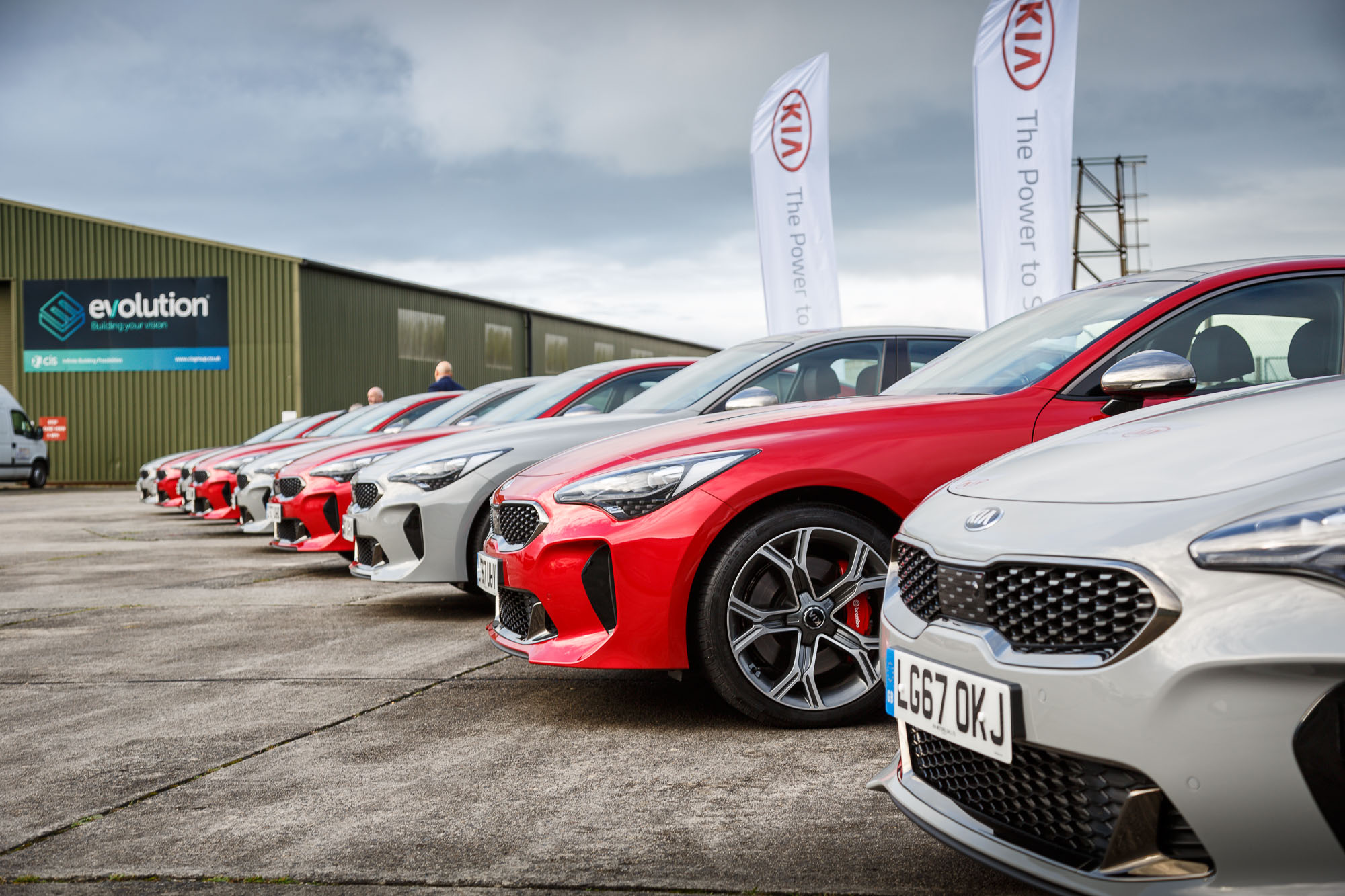
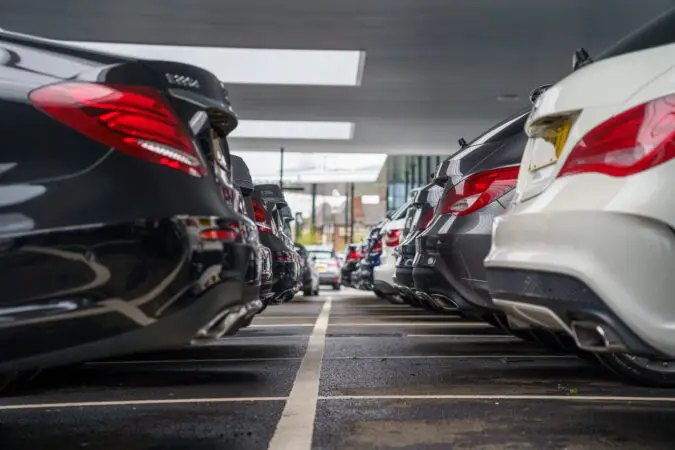
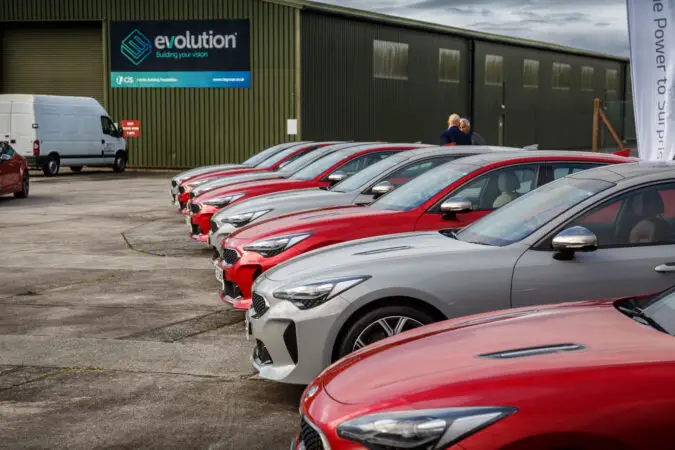
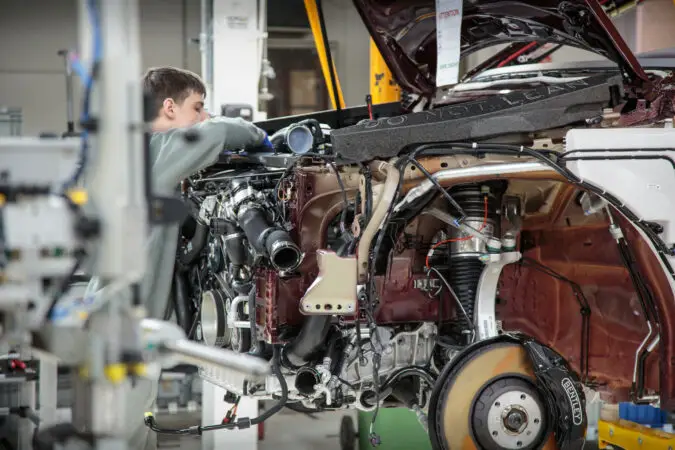
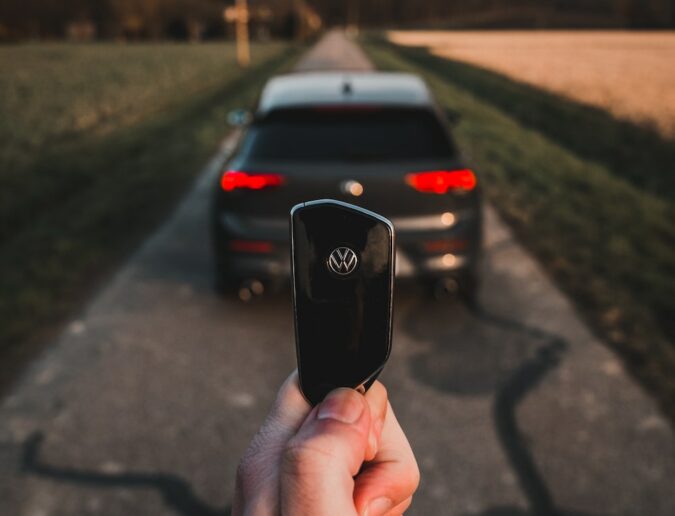
1 comment
Price gouging plain and simple. How is this any different than gas stations gouging customers during a hurricane or motels doing the same? Yet the government cracks down on that. Why are car dealers allowed to price gouge during shortages when they are not paying any more for the vehicles that they normally would? Running my own landscape company I have bought many many trucks from the same Ford dealer in New Hampshire over the last 30 years… Now he wants $9000 over market price for a vehicle! Guess who just lost a very loyal customer?! Hopefully his greed will come back to bite him.